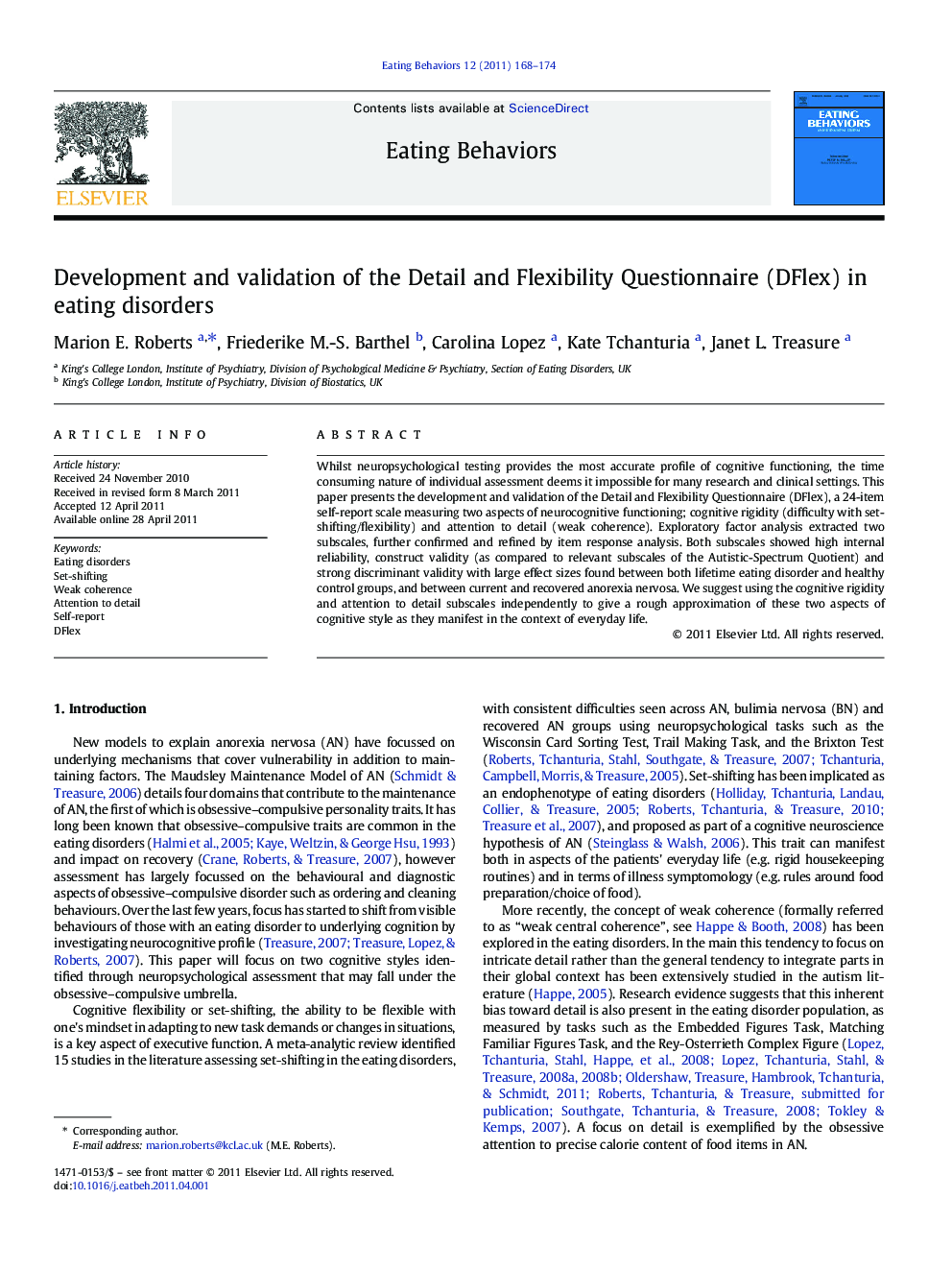| Article ID | Journal | Published Year | Pages | File Type |
|---|---|---|---|---|
| 906727 | Eating Behaviors | 2011 | 7 Pages |
Whilst neuropsychological testing provides the most accurate profile of cognitive functioning, the time consuming nature of individual assessment deems it impossible for many research and clinical settings. This paper presents the development and validation of the Detail and Flexibility Questionnaire (DFlex), a 24-item self-report scale measuring two aspects of neurocognitive functioning; cognitive rigidity (difficulty with set-shifting/flexibility) and attention to detail (weak coherence). Exploratory factor analysis extracted two subscales, further confirmed and refined by item response analysis. Both subscales showed high internal reliability, construct validity (as compared to relevant subscales of the Autistic-Spectrum Quotient) and strong discriminant validity with large effect sizes found between both lifetime eating disorder and healthy control groups, and between current and recovered anorexia nervosa. We suggest using the cognitive rigidity and attention to detail subscales independently to give a rough approximation of these two aspects of cognitive style as they manifest in the context of everyday life.
Research highlights► New self-report scale measuring attention to detail and cognitive rigidity in eating disorders. ► Exploratory factor analysis, item response analysis and psychometrics presented. ► Higher scores on DFlex subscales in current and recovered eating disorder groups. ► DFlex is a useful tool for research and clinical settings without neuropsychological resource.
